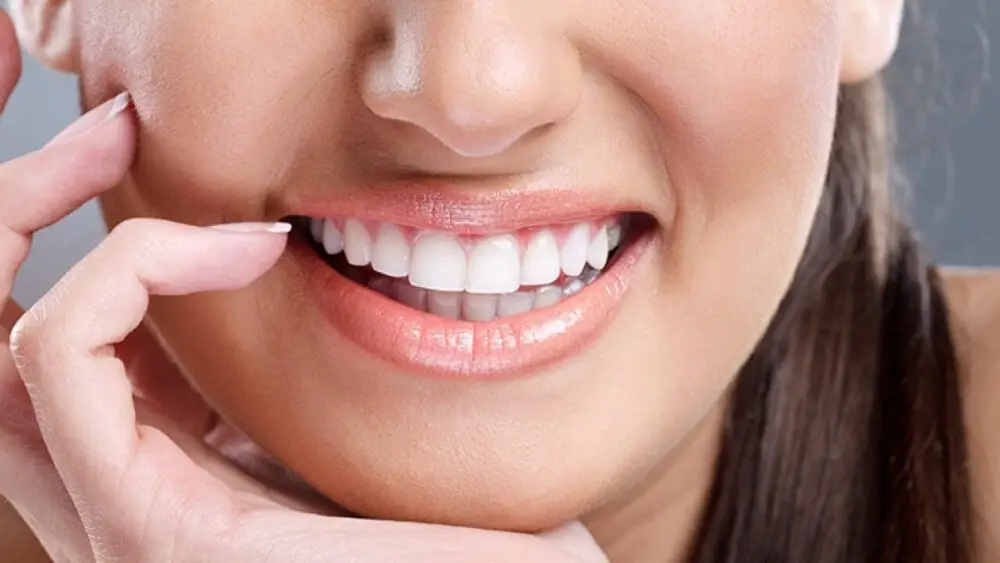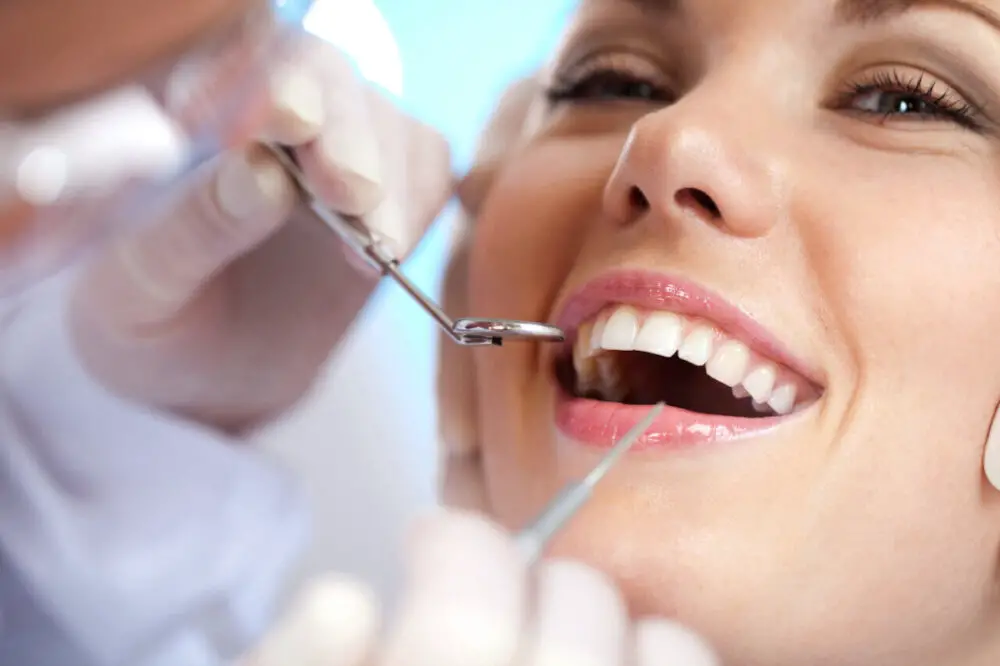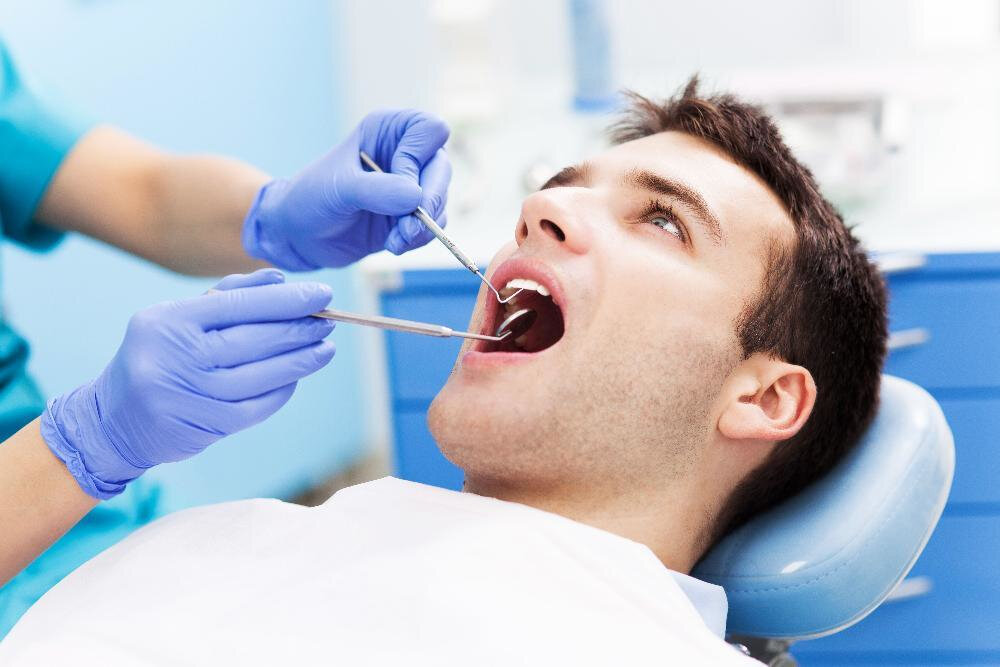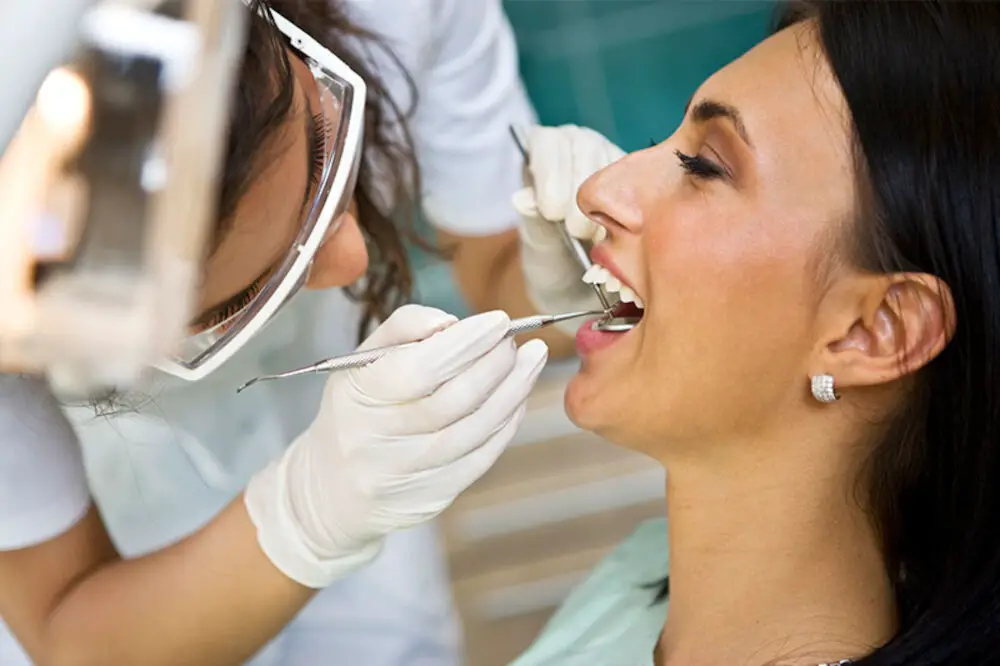Teething Troubles: Effective Tips to Stop Baby Teeth Grinding

Babies and toddlers are adorable little creatures, but they are not always easy to manage. One of the most common issues that parents face is baby teeth grinding, also known as bruxism. This condition can be caused by a variety of factors, including teething, anxiety, and stress. Teeth grinding can cause discomfort for the baby and disrupt sleep patterns, making it a problem that needs to be addressed as soon as possible. Fortunately, there are several effective tips that parents can use to stop baby teeth grinding and ensure that their little ones are happy and healthy. Teething troubles are a common phenomenon that every parent has to face at some point in their child’s life. Teething often causes a lot of discomfort, and babies may exhibit a range of symptoms such as gum inflammation, drooling, and irritability. One of the lesser-known effects of teething is teeth grinding, which can be a source of concern for parents. Grinding of teeth can be a sign of pain, stress, or anxiety, and may cause damage to the baby’s developing teeth. Parents need to be aware of the causes and effects of teeth grinding and take steps to prevent it from becoming a habit. This article will provide useful tips and suggestions to help parents deal with the teething troubles of their little ones and prevent teeth grinding.
Baby teeth grinding is a common occurrence during the teething phase, which typically begins around six months of age. It is known as bruxism, and it usually happens when babies are asleep. The main cause of this behavior is the discomfort that babies feel while their teeth are growing, and grinding their teeth can provide relief from this discomfort. However, other factors such as stress, anxiety, and misaligned teeth can contribute to bruxism. It is important to keep an eye on your baby’s teeth grinding behavior and consult with a pediatrician if it persists or causes damage to their teeth.
Addressing the issue of baby teeth grinding is crucial to ensure the overall well-being of the child. Teeth grinding or bruxism can lead to several dental and oral problems, including tooth damage, jaw pain, and headaches. Furthermore, it can also affect the quality of sleep and result in daytime fatigue and irritability. Ignoring the issue can cause long-term consequences, such as misaligned teeth, which can lead to more severe dental problems. Thus, parents should address the issue of teeth grinding and take necessary steps to prevent it from happening. This article provides effective tips that can help parents alleviate the symptoms of bruxism and ensure a healthy dental and oral hygiene for their child.
Causes of Baby Teeth Grinding

Baby teeth grinding or bruxism is a common issue that affects many infants and toddlers. There are several factors that can contribute to this problem, including teething, stress, anxiety, and an improper bite. Teething is one of the most common causes of bruxism in babies. When the teeth start to emerge from the gums, it can be a painful and uncomfortable experience for the baby. This can cause them to grind their teeth as a way to relieve the discomfort. Parents can help alleviate this by providing safe teething toys or gently massaging the baby’s gums with a clean finger. Stress and anxiety can also contribute to baby teeth grinding. Just like adults, babies can experience stress and anxiety, which can cause them to grind their teeth. This can be due to changes in their routine or environment, such as starting daycare or a new caregiver. In these cases, parents can try to identify the source of the stress and provide comfort and reassurance to the baby. Additionally, creating a calm and relaxing bedtime routine can help reduce stress and promote better sleep, which can also help prevent teeth grinding.
Teething is a natural process that can cause a lot of pain and discomfort for babies. The process of teeth erupting from the gums can be a very painful experience for babies, as the teeth push through the sensitive tissues of the gums. Teething can cause symptoms such as swollen gums, irritability, fussiness, drooling, and even fever. This can make it difficult for babies to sleep and eat, which can be very distressing for both the baby and the parents. It is important for parents to be aware of the signs of teething and to take steps to alleviate their baby’s discomfort. There are many effective remedies that can help to soothe a teething baby, including teething toys, cold washcloths, and even natural remedies like chamomile tea and ginger root. By taking proactive steps to ease their baby’s teething pain, parents can help their little one to feel more comfortable and happy during this challenging time.
Stress and anxiety are common issues that affect people of all ages, including babies. In fact, teething troubles can be a significant source of stress for both babies and parents. When babies are experiencing discomfort from teething, they may grind their teeth as a way to relieve the pain. However, teeth grinding can also be a sign of stress or anxiety, which can exacerbate teething troubles. It’s important for parents to be aware of the signs of stress and anxiety in their babies, such as fussiness, irritability, and difficulty sleeping, so they can take steps to alleviate these symptoms and provide their little ones with the comfort and care they need during this challenging time.
Misaligned teeth or jaws can cause a variety of dental problems, including difficulty chewing, speaking, and maintaining proper oral hygiene. This condition can also lead to facial asymmetry and breathing problems. While some individuals are born with misaligned teeth or jaws, others may develop this condition due to factors such as thumb-sucking, tongue thrusting, or injury. In severe cases, orthodontic treatment may be necessary to correct misaligned teeth or jaws. However, there are also preventative measures that can be taken, such as discouraging thumb-sucking, using a mouthguard during sports activities, and maintaining good oral hygiene habits.
Signs and Symptoms of Baby Teeth Grinding

Teething Troubles Effective Tips to Stop Baby Teeth Grinding is a comprehensive guide that aims to help parents identify and address their child’s teeth grinding problem. Baby teeth grinding, also known as bruxism, is a common issue that affects many infants and toddlers. It occurs when a child clenches or grinds their teeth, often while sleeping. One of the most common signs of baby teeth grinding is a loud, grinding noise that can be heard while the child is sleeping. Parents may also notice that their child’s teeth appear to be worn down or damaged, which can be a result of the grinding. In addition to the grinding noise and tooth damage, there are other signs and symptoms that parents should be aware of. For example, a child who grinds their teeth may experience jaw pain or headaches, particularly in the morning. They may also have difficulty sleeping or experience fatigue during the day due to disrupted sleep. If left untreated, baby teeth grinding can lead to more serious dental problems, such as tooth decay and gum disease. However, by recognizing the signs and symptoms of this condition, parents can take steps to address the problem and prevent further damage to their child’s teeth and gums.
Grinding noises during sleep can be a concerning issue for parents of young children. Not only can the sound be disturbing, but it may also indicate a problem with teeth grinding, also known as bruxism. This condition can lead to dental problems and discomfort for the child. While teething is a common cause of bruxism, stress and anxiety can also be contributing factors. Effective tips to stop baby teeth grinding include providing a comforting bedtime routine, addressing any underlying stress or anxiety, and using a mouthguard to protect the teeth. By taking a proactive approach to this issue, parents can help ensure their child’s dental health and overall well-being.
Worn down teeth, also known as tooth wear, is a common dental problem that occurs due to various reasons, including teeth grinding or clenching. This condition can lead to sensitivity, pain, and even tooth loss if left untreated. Teeth grinding can be caused by stress, anxiety, or an abnormal bite. It is essential to address the underlying cause of teeth grinding to prevent further damage to the teeth. Dentists may recommend wearing a mouthguard or performing relaxation techniques to reduce stress and anxiety. It is crucial to seek professional help if you’re experiencing worn down teeth to preserve your dental health and prevent future complications.
Jaw pain or soreness is a common issue that parents may notice in their infants or toddlers who are experiencing teething troubles. The discomfort and pain associated with teething can cause children to grind their teeth, leading to jaw pain or soreness. This can be especially challenging for parents who are already struggling to soothe their child’s teething symptoms. To alleviate jaw pain or soreness, parents can try massaging the child’s jaw or providing a cold compress to the affected area. Additionally, offering teething toys or teething biscuits can help distract the child and provide relief from teething discomfort, ultimately reducing the likelihood of teeth grinding and jaw pain.
Tips to Stop Baby Teeth Grinding

Teething can be a challenging time for both babies and parents alike. One of the common issues that parents face during this period is teeth grinding. Teeth grinding or bruxism is a common condition that occurs when a person clenches or grinds their teeth unconsciously. While it is a common issue among adults, it can also affect babies and toddlers. Teeth grinding can cause discomfort and pain to your little one, and if left untreated, it can lead to more severe dental problems. However, there are some effective tips that parents can follow to stop baby teeth grinding. The first step in stopping baby teeth grinding is to identify the cause. In most cases, teeth grinding is caused by teething, stress, or anxiety. Parents can try to soothe their baby’s gums by using a cold teething ring or massaging the gums with a clean finger. If the cause is stress or anxiety, parents can try to create a calm and relaxing environment for their baby. A warm bath, soft music, or a bedtime story can help soothe your baby and reduce teeth grinding. Additionally, parents can also consult with their pediatrician or dentist to rule out any underlying medical conditions that may be causing the teeth grinding. By identifying the cause and taking steps to address it, parents can effectively stop their baby from grinding their teeth.
When a baby starts teething, it can be a difficult and uncomfortable experience for both the baby and parents. One way to help alleviate the pain and discomfort that comes with teething is to provide teething toys or a cold washcloth to chew on. Teething toys are designed to be safe for babies to chew on and can provide a satisfying sensation for their sore gums. A cold washcloth can also be soothing, as the cold temperature can help to numb the pain. It’s important to make sure that any teething toys or washcloths are clean and free from any potential hazards. By providing these items, parents can help their babies through the teething process and make the experience a little more manageable for everyone involved.
Teething can be a stressful time for babies, and as parents, it’s important to create a calm and soothing environment to help reduce their stress levels. One way to do this is by controlling the amount of noise and activity around your baby, especially during nap times. It’s also important to maintain a consistent routine and schedule to help your baby feel secure and comfortable in their surroundings. Additionally, providing plenty of opportunities for your baby to play and explore can help to distract them from the discomfort of teething and reduce their overall stress levels. By taking these simple steps, you can help your baby navigate the challenges of teething with greater ease and comfort.
It is crucial to visit a dentist if you suspect your child has misaligned teeth or jaws. Misaligned teeth can lead to a range of dental problems, including difficulty chewing, speech impediments, and even chronic headaches. A dentist can assess the severity of the misalignment and recommend appropriate treatment options, such as braces or Invisalign. Early intervention is key to preventing more serious dental issues down the road, so don’t delay in scheduling an appointment if you have concerns about your child’s teeth or jaw alignment.
Teething can be a challenging time for babies and parents alike, and teeth grinding can make it even more difficult. One effective solution to consider is using a mouthguard. A mouthguard is a dental appliance that fits over your child’s teeth to protect them from damage caused by grinding and clenching. It can also help to relieve the discomfort associated with teething. Mouthguards come in different shapes and sizes, so it’s important to choose one that fits your child’s mouth comfortably. While it may take some time for your child to get used to wearing a mouthguard, it can provide significant relief and protect their teeth during this challenging period.
When to Seek Professional Help

When it comes to teething troubles, baby teeth grinding is a common issue that parents encounter. While it is a normal part of a child’s development, excessive teeth grinding can cause discomfort, pain, and even damage to their teeth. As a parent, it is essential to know when to seek professional help for your child’s teeth grinding. If your child’s teeth grinding is accompanied by other symptoms such as jaw pain, facial pain, earaches, or headaches, it is time to see a dentist or pediatrician. These symptoms could indicate an underlying issue that needs to be addressed promptly. Apart from physical symptoms, psychological factors can also contribute to teeth grinding in children. If your child is experiencing stress, anxiety, or sleep disorders, it could lead to excessive teeth grinding. In such cases, seeking professional help from a child psychologist or therapist can be beneficial. They can provide guidance and support to help your child cope with their emotions, reduce stress levels, and improve their sleep quality, which can significantly reduce teeth grinding. Seeking professional help can help identify the root cause of your child’s teeth grinding and ensure that they receive the appropriate treatment to prevent any further damage to their teeth and overall health.
Teeth grinding, also known as bruxism, is a common problem among young children. While it is usually harmless and resolves on its own, it can sometimes cause significant tooth damage or pain. If your child’s teeth grinding is causing these issues, it is important to seek professional help. A dentist can assess the extent of the damage and recommend treatment options, such as a mouth guard. Additionally, it may be helpful to identify and address any underlying causes of the teeth grinding, such as stress or anxiety. With the right intervention, you can help your child overcome their teething troubles and protect their dental health.
Teething is a challenging phase for babies and their parents, and teeth grinding is one of the common issues that add to the trouble. Although many parents try to stop the grinding by changing the baby’s diet or providing a pacifier, it sometimes persists. If the grinding persists despite attempts to stop it, parents should consult a pediatric dentist or a pediatrician. They can examine the baby’s teeth and mouth to identify any underlying dental issues or other problems that may be causing the grinding. Timely intervention can prevent further damage to the baby’s teeth and ensure that they grow up with healthy and strong teeth.
If there are other concerning symptoms present, it’s important to seek advice from a healthcare professional. While teeth grinding during teething is common, it’s important to ensure that there aren’t any underlying medical issues causing the behavior. If your child is experiencing other symptoms such as fever, diarrhea, or a rash, it’s important to get them checked out. Additionally, if your child is grinding their teeth excessively or if their teeth appear to be wearing down, it’s important to have them evaluated by a dentist. By addressing any underlying issues, you can ensure that your child is healthy and happy during this important developmental stage.
Addressing baby teeth grinding is crucial as it can lead to several dental problems, including tooth damage, pain, and discomfort. Baby teeth grinding, also known as bruxism, can cause the teeth to become worn down and even fracture over time. This can ultimately lead to expensive and painful dental procedures. Furthermore, baby teeth grinding can also cause headaches and earaches, leading to discomfort and irritability for the child. It’s important to address baby teeth grinding early on to prevent further damage and ensure the child’s overall dental and physical health. By following effective tips and techniques, parents can help their child overcome this habit and prevent future dental issues.
The effectiveness of the tips provided for stopping baby teeth grinding cannot be reiterated enough. These tips have been tried and tested by countless parents who have reported a significant reduction in their baby’s teeth grinding habit. By implementing simple practices such as giving your baby a warm bath before bedtime, ensuring they are well-rested, and soothing them with a lullaby or white noise, parents have been able to reduce the frequency and intensity of their baby’s teeth grinding. Additionally, using a pacifier or teething toy can also help alleviate the discomfort that may be causing your baby to grind their teeth. Overall, these tips are simple yet effective, and have helped parents provide their babies with the relief they need to get a good night’s sleep.
If you notice that your baby is grinding their teeth, it is essential to seek professional help if necessary. While teeth grinding is not uncommon in babies, it can lead to dental problems and discomfort for your little one. A pediatric dentist or doctor can help determine the underlying cause of the teeth grinding and provide effective solutions to stop it. It’s crucial to address the issue early on to prevent long-term damage to your baby’s teeth and jaw. Don’t hesitate to seek professional help if you have concerns about your baby’s teeth grinding. It’s better to be safe than sorry when it comes to your child’s dental health.
Conclusion

In conclusion, teething troubles can be a challenging phase for both babies and their parents, and teeth grinding can add to the stress. However, with the right approach, this habit can be effectively managed. It is essential to identify the underlying cause and address it accordingly. Simple measures such as massaging the gums, providing soft chew toys, and ensuring a relaxing bedtime routine can go a long way in reducing teeth grinding. In severe cases, seeking advice from a pediatric dentist can help prevent dental damage and ensure the child’s overall oral health. As with any parenting challenge, patience, consistency, and a positive attitude are key to navigating this phase successfully. By following these tips and working closely with your child’s dentist, you can help your little one get through their teething troubles and emerge with a healthy, happy smile.





